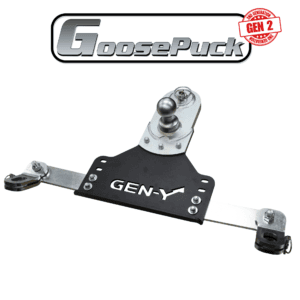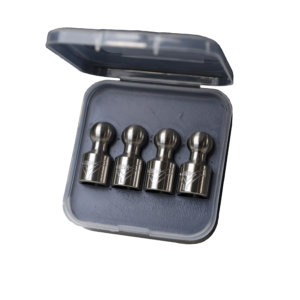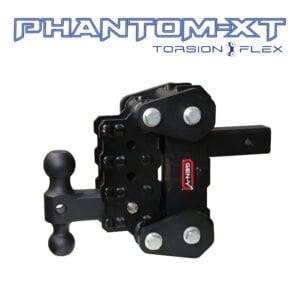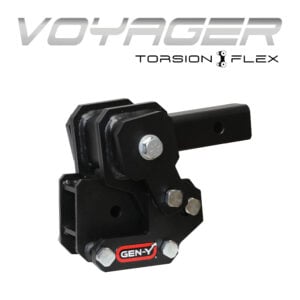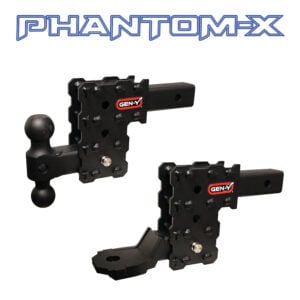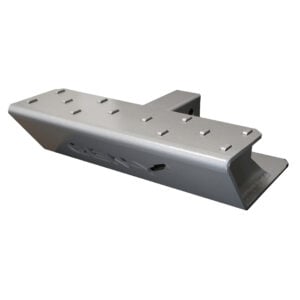Whether planning a cross-country road trip, moving to a new home, or transporting heavy equipment, trailers are vital to fulfilling various hauling needs. With a wide array of trailers available on the market, it is essential to understand the different types and their specific uses. Let’s go over the different types of trailers and their benefits.
Utility Trailers
Utility trailers are popular, as their versatility allows for flexible transportation of different kinds of cargo. They typically possess an open design with a flatbed and are suitable for hauling furniture, equipment, construction materials, or landscaping supplies.
Utility trailers can range from a few hundred dollars for small, basic models to several thousand dollars for larger or heavy-duty trailers. Prices typically start around $500 and can go up to $5,000 or more, depending on the size, material, and additional features.
Travel Trailers
Travel trailers are designed for recreational purposes and offer living quarters on wheels. They come in various sizes and layouts, from compact teardrop trailers to larger motorhomes. Travel trailers provide amenities like sleeping areas, kitchens, bathrooms, and living spaces, allowing you to take your home on the road.
Travel trailers have a wide price range due to their various sizes and features. Small, entry-level travel trailers typically start around $10,000, while more significant, luxurious models can cost $30,000 to $100,000. High-end, luxury travel trailers sometimes exceed $150,000.
Enclosed Trailers
Enclosed trailers have a fully enclosed structure with walls, a roof, and doors. They offer protection from the elements and secure storage for valuable or sensitive cargo. Common uses for enclosed trailers include hauling motorcycles, ATVs, cars, or goods that require weatherproof and secure transportation.
Enclosed trailers vary in price based on size, material quality, and features. Smaller enclosed trailers designed for personal use can start around $2,000, while larger, heavy-duty models used for commercial purposes can range from $5,000 to $20,000 or more.
Flatbed Trailers
Flatbed trailers have an open, flat surface without sides or a roof. They are ideal for transporting oversized or irregularly shaped items, machinery, vehicles, or construction materials. Flatbed trailers offer flexibility and easy loading and unloading.
Flatbed trailers are available in different sizes and weight capacities. Smaller flatbed trailers typically cost around $1,000. Heavier-duty models used for commercial purposes or specialized applications can range from $5,000 to $20,000 or higher.
Dump Trailers
Dump trailers contain a hydraulic lifting system that allows the cargo bed to tilt and unload its contents. They are commonly used for transporting and dumping loose materials such as gravel, soil, debris, or construction waste.
Dump trailers come in various sizes and weight capacities. Smaller dump trailers suitable for personal use can start around $2,000, while larger, heavy-duty dump trailers designed for professional applications can range from $5,000 to $15,000 or more.
Boat Trailers
As the name implies, boat trailers transport boats from land to water and vice versa. They possess specialized features such as adjustable bunks or rollers, winches, and waterproof lighting systems. Boat trailers come in different sizes and designs to accommodate various types of boats, such as fishing boats, speedboats, or sailboats. They are undoubtedly the most situational trailer on this list; however, they are still necessary for many boat owners.
Boat trailers vary in price depending on their size, weight capacity, and features. Prices start around $1,000 for smaller boat trailers and go up to $10,000 or more for more extensive, heavy-duty trailers designed for larger boats.
How Do You Know What Trailer Hitch You Need?
Choosing the right trailer hitch is a straightforward process. Start by checking your vehicle’s towing capacity, which you can find in the owner’s manual, or by contacting the manufacturer. This towing capacity will give you an idea of how much weight your vehicle can safely tow. Then, determine the trailer weight you plan to pull, including the total and tongue weights. Once you have these numbers, you can choose a hitch class that matches your towing needs. Hitch classes are categorized based on weight capacities, such as Class I, II, III/IV, or V. Selecting a hitch within your vehicle’s towing capacity is essential. Additionally, ensure the hitch receiver size matches your vehicle’s receiver opening. Standard sizes are 1-1/4 inches or 2 inches.
Contact a trusted trailer hitch dealer or installer if you need clarification regarding any aspect of the process or want expert advice. These professionals possess extensive knowledge and experience in the field. They can provide personalized recommendations based on your vehicle and towing requirements. Additionally, they can assess your vehicle’s towing capacity, discuss your intended usage, and guide you in selecting the appropriate hitch class, size, and additional features. By consulting with a professional, you can ensure that you make an informed decision and find the right trailer hitch that meets your needs while providing safe and efficient towing.
Let Us Help!
Gen-Y Hitch exists to better the lives of our customers, dealers, vendors, employees, and the automotive industry. We will always put our customers’ needs ahead of our own. Contact us today, and let us help you!



